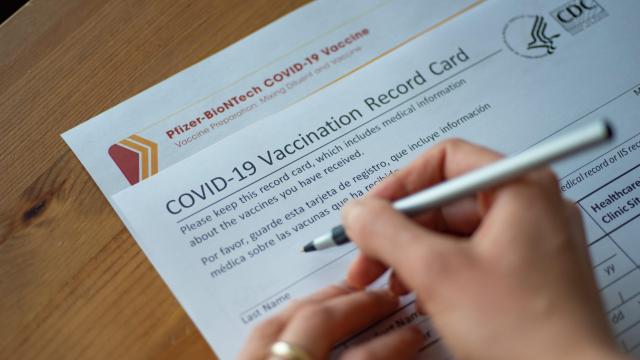When you’re looking for a new job, every little advantage over other candidates helps. But is your vaccination status now an advantage you should disclose during the screening or interview process? On one hand, being vaccinated isn’t a job skill; but on the other hand, being unvaccinated is a public health liability that can’t be shrugged off by employers.
The unvaccinated are already at a disadvantage
A Biden administration vaccine mandate in U.S. for businesses with 100 or more employees is expected to drop in the next few weeks, but many larger companies like Google, Walmart, and United Airlines already imposed workplace-based vaccine mandates for their employees during the summer.
There’s been some pushback on Biden’s mandate from employers, but at this time, it doesn’t look like a legal challenge will stop it from happening. Considering this mandate affects roughly two-thirds of the private sector workforce, applicants are severely limiting their employment prospects by not getting vaccinated.
The case for putting your vaccination status on your resume
From a legal standpoint, it’s not easy for companies to outright ask you if you’re vaccinated during the hiring process. The reason for this is that some candidates can be exempt for religious or medical reasons. What constitutes a religious or medical reason for not getting the vaccine is hotly debated (allergic reactions to the initial vaccine could be a legitimate reason for medical exemption, for example), but employers can still reject these claims and be on firm legal ground.
Rather than dealing with all this, employers are more likely to hire someone who is vaccinated. This is backed up by a recent ResumeBuilder.com survey of 1,250 hiring managers, in which nearly 70% said they were more likely to hire somebody who put their vaccination status on their resume.
For that reason, many recruiters and career coaches say it isn’t a bad idea to include vaccine information on your resume, cover letter, or LinkedIn profile. After all, if you’re vaccinated and it gives you an edge over other candidates, why not?
The case against putting your vaccination status on your resume
Some experts think the expectation to declare your vaccination status makes it easier for employers to discriminate against people who might have legitimate religious or medical reasons to not get the vaccine. As Magalie René, CEO of Workplace Catalyst, a workplace coaching firm, explains to CNBC’s Make It: “There’s been a renewed interest in inclusivity when it comes to recruiting and hiring, but if we begin to tell job seekers, ‘Put your vaccination status on your resume,’ that potentially excludes people that haven’t taken the vaccine yet, but might consider doing so if it’s a job requirement. It just creates another barrier to job entry, and what we need to be focusing on right now is how to foster inclusion, not driving polarization.”
Bottom line
If employers are saying they’ll hire applicants based on their vaccination status, it’s probably unreasonable to expect that people won’t include that information on their resume or cover letter when applying for jobs.
Perhaps a better solution, though, is for more employers to impose a mandatory vaccination policy and be upfront about it, rather than placing the burden of vaccine disclosure on the applicant. With a mandate, employers would also have more legal flexibility to disclose their policy with a potential hire during the application process, and then consider any religious or medical exemption accommodations, if they’re requested.

Leave a Reply
You must be logged in to post a comment.